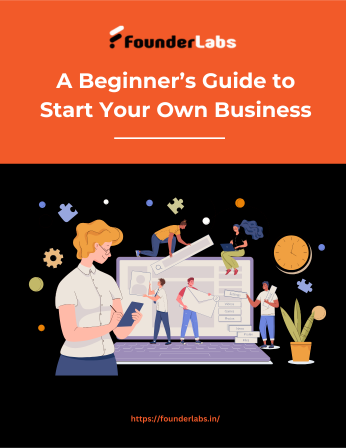Building Smart from Day One: A Founder’s Playbook for Early-Stage Startups
Launching a startup is exhilarating. It’s the thrill of creating something from scratch, solving real problems, and dreaming big. But the early stage is also where most mistakes happen—many of them avoidable. As a first-time founder, what you do in your first 12–18 months sets the tone for everything that follows.
Here’s how to navigate that journey with clarity, intention, and confidence.
Find the Right Co-founder, Not Just Any Co-founder
Startups are hard. Don’t go at it alone unless you absolutely must.
The right co-founder brings more than just skills—they bring resilience, trust, and shared purpose. Align on values first. Talk openly about long-term goals, decision-making, and working styles. Define roles clearly. Avoid overlapping responsibilities. Conflict is inevitable, but clarity reduces friction. Have the tough talks early: equity splits, time commitments, and worst-case scenarios—document agreements. Set boundaries. It’s easier to build a company when the foundation is stable.
Understand the Market You Can Win, Not Just the One That Looks Big
Every founder loves a massive TAM slide. But size without focus leads to wasted effort.
Instead, find the niche where you can win. Define your target customer with laser precision. Who are they? What’s their pain point? Why will they choose you? Segment your market. Look at who needs your solution, who’s already searching for it, and who’s underserved. Start there. Win small, then scale. A focused wedge strategy beats vague mass-market dreams.
Know If Your Startup Is Venture-Backable
Not all great businesses are VC material. And that’s okay.
Venture capital looks for companies that can grow fast, build moats, and dominate large markets. If your model doesn’t allow for exponential growth or network effects, rethink your fundraising strategy.
Ask yourself: Can this scale rapidly? Can it attract top-tier talent? Does it solve a problem big enough to build a billion-dollar outcome?
If not, consider bootstrapping or alternative funding. It’s better to grow sustainably than chase capital that doesn’t fit.
Competition Isn’t a Red Flag—It’s a Sign You’re Onto Something
Founders often panic when they discover competitors. Don’t. Competition validates the problem you’re solving. Your job isn’t to avoid competition—it’s to stand out. Know your edge. Is it product quality, speed, service, brand voice, or price? Build what others miss. Own your niche.
Study competitors. Learn from their strengths and gaps. But don’t obsess. Focus on delivering real value to your users. That’s your best defense.
Build Trust, Then Scale the Brand
Your brand isn’t your logo or tagline—it’s how people feel about your product.
Trust drives everything. Customers stick with companies that deliver consistently and communicate honestly. Build credibility through great experiences, not gimmicks. Start small. Solve problems deeply. Be responsive. Admit mistakes. Fix them fast. Share your story. Make users feel heard. A brand with soul lasts longer than one with hype.
Raise Capital with a Plan, Not Just a Pitch
Raising money is not the goal—it’s fuel for your journey. Use it wisely.
Plan your burn. Allocate funds to growth levers—product, hiring, marketing. Track performance closely. Set milestones before spending big. Don’t hire just to look like a “real startup.” Hire to solve problems. Avoid vanity expenses. Fancy offices and inflated titles burn cash and blur focus. Stay lean. Let discipline be your default. And remember: investors invest in outcomes, not effort. Keep them informed. Build trust through transparency. They’re your partners, not just your funders.
Move Fast, Learn Faster
Speed is your superpower in the early stage. Don’t wait to be perfect. Launch early. Listen to users. Iterate fast. Every delay is a missed learning. The faster you ship, the faster you improve. Use clear weekly goals. Stay execution-focused. Ideas mean nothing without momentum. Great founders aren’t idea-rich—they’re action-rich. Talk to customers often. Watch how they use your product. What frustrates them? What do they love? Feedback is your best product roadmap.
Culture Starts Now—Even If You’re a Team of Three
Culture isn’t ping-pong tables or perks. It’s how your team behaves when no one’s watching.
Set the tone early. Default to trust, honesty, and ownership. Celebrate learning. Admit mistakes. Prioritize mental health. Avoid hero culture—it burns people out. Write down your principles. Live them. Hire people who believe in your mission. Fire fast if they don’t. Culture compounds. Build it consciously, or it builds itself—and not always in the right direction.
Don’t Lose Sight of Why You Started
Startups rarely fail overnight. They unravel slowly—through misalignment, drift, distractions, or burnout. Stay connected to your “why.” Revisit your purpose regularly.
Surround yourself with honest mentors, sharp peers, and resilient teammates. Learn every day. Be curious. Stay grounded. Celebrate progress. Reflect on setbacks. Keep moving forward with intent.
Final Words: Build Like It Matters
There’s no single formula for startup success. But there is a mindset: Build with purpose. Move with speed. Listen deeply. Lead with heart. Startups are built by those who care more, try harder, and learn faster. Be that founder. Your journey is just beginning. Make every decision count. Read More at – Kalaari Capital.
For more such daily insights do reach out at – FOUNDERLABS today.



